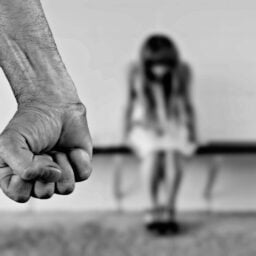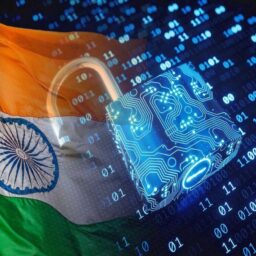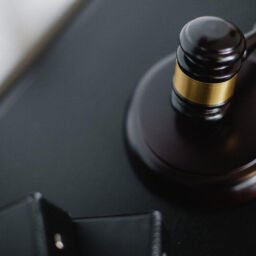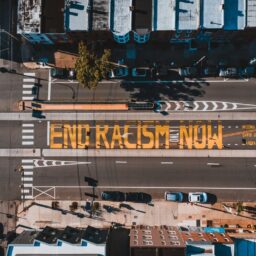SHALLOW CRIMINAL JUSTICE SYSTEM
Introduction
Poverty is the universal phenomenon. Poverty can be a condition in which someone is so economically backward that they are not even able to meet their vital needs, they always fear that the chances of being a victim of the unfortunate situation are much greater than those of the wealthy class.
In theory, Indians accused of a crime are on an equal footing with the jurisdiction of any Indian court according to the government of the country. This can be guaranteed by “Article 14” and “Article 21” anchored in our constitution, the lived logic of “Make no mistake in your judgment and do not be a fan of any category of individuals.” Venerable judges of our country vow to “do justice to both the rich and the poor.” Unfortunately, despite these guarantees and safeguards, the poor and disadvantaged often face injustices in our courts because of rich (or reasonably rich), as the saying goes: There can be no equal justice when it depends on the amount of money a person has.
The savage outlook
When “suspects” are raided by police, it is usually in poor neighbourhoods, rarely in middle-class communities. As a result, more poor than rich are arrested for crimes they did not commit. The actual number of these people who are unable to find work due to an “arrest history” for involuntary participation in such episodes is still unknown. But what we can say is that there is an urgent need to educate the poor about their fundamental, for example their rights under “Article 22” of the Constitution given no one who is the Detainees they are in Detainee without being asked to consult a lawyer, there are procedures that allow them to do so.
Another fact of the matter is the poor often has no choice but to anticipate the decision on his case in prison due to his financial problems, unable to post the desired bail, while the defendant can pay the deposit to return to his family and work. We have even seen people getting arrested in several of the egregious cases, but released on bail during the critical period between arrest and trial to help their attorney investigate and prepare their defence.
Fallacy in the system
MISUSE OF Cr.p.c: Police is the driving force in our country they are entrusted with exceptional powers under various provisions in India and one of them is Cr.P.C. Police is given the duty to maintain peace and tranquillity in the society by enforcing the law and order situation in the territory. And since they are given wide range of powers so will be their range to misuse their powers and violate the rights of a common person. Constitution being the supreme document in world’s largest democracy shall prevail over other contrary laws but the police thinks that since they are law enforcer they have this enough scope to violate and go against the constitution by snatching away the rights of person which is in most of the cases a person belonging to a not so privileged class with no basis knowledge of their legal rights.
According to the Sub-Section (3) of Section 46 of Cr.P.C. it is the right to the police officer to cause death of a person who is accused of death penalty or with life imprisonment in case the accused tries to run away from arrest or custody. Here the most paramount fact to note is that this person necessarily doesn’t have to be the guilty person so declared by the court but only the accusation for the same is necessary for the police to take over the justice in their hands. We mainly see fake encounters happening in the garb of upholding the fast delivered justice according to studies fake encounter victims are generally the one having no prior knowledge of their legal rights and are often financially retarded.
Article 39A: The state shall provide equal right to justice to everyone and try to make and promote a criminal justice system that shall thrive on giving the equal justice to everyone be it someone on the road, workplace or even in his house. The state shall ensure that factors like illiteracy, destitution and absence of knowledge of the fundamental rights shall not become the hindrance in delivering the justice and must endeavour the system that promotes justice by giving equal opportunity with the help of free legal aids by suitable legislations and schemes or in any other way as the government shall deem it to be fit to ensure that justice is not denied to a person with the economic disability or any other disabilities.
Every party to the case shall have equal and lawful access to the court to present their side and for that they require money and a skilful lawyer to present their case. Hence it is very much fundamental to the core of state to take the legal aid as the constitutional obligation and not as charity. Legal aid and legal system is very much proportionate to the welfare of the state. The poor whom we discussed earlier is always the first one to be arrested by the police and to be denied justice. They are also not in position to pay the hefty amounts of money as form of fees to lawyer who will defend his case, hence keeping the prevailing situation in mind the amendment was made in the constitution and thereby was added the article 39A in the Indian constitution so that everyone is equally at par with respect to justice delivered by the constitutional courts.
Amendments that should be donE
Making the laws harsher and stricter will be in vain if the enforcer of these laws takes the laws for granted and often flouts them, The Apex court and the subordinate courts passing verdicts along with their guidelines with regards to arrest and detention of the person must be followed by every executive in the latter and spirit keeping in mind the constitutional morals of our county. Moreover the strength of police is already unsubstantial; the national average of police men per lakh is only 138 which is way below the suggested and required standard of United Nations according to which the ratio shall be 222 police officers for 1 Lakh citizens. Building further on the same premise making it is difficult for the already constrained police force to maintain law and order as well as investigate the different criminal cases thus delaying the investigation here too withstanding the constrained fact the police officers generally take the cases which are VIP in nature hence ignoring the needs of the poor who has to live in jail under magistrate order for a considerable time period, which is also subjected to extended building on the same premise we can henceforth reachat the conclusion that even in investigation there is been discrimination .
In Indian Penal Code has 22 chapters and 511 sections and 40 percent of the section in this code talk about “offences against human body” and “offences against property” regretfully in today’s time crime constituted under them are 4.7 percent and 5 percent respectively , this compressed distribution of the cases committed and sections in the code tells the anomalies within the criminal justice system and is urgently requires the reconsideration keeping in mind 21st century context rather than 19th century when the code was made.
CONCLUSION
The article states that the social and economic rights conferred on citizens by the Constitution of India are systematically denied to them. This denial of rights has created a state of eternal injustice. This conclusion is reached by the human deprivations of the last 76 years and by the existence of a series of imperfections that have led to a state of human poverty. These political and social rights are the essential characteristics of the right to equality guaranteed in article 14 of the Constitution. The Supreme Court has emphasized this on many occasions.
Our broad vision of access to justice includes not only the ability to access courts, but also the ability to interact effectively with law enforcement officials and use informal non-governmental judicial mechanisms.
Equal access to justice shall be the core of our judicial system and a core value of India and must remain fundamental to the very spirit of the policy making by the government the reason why equal justice shall be a core value of India and essential to the very existence of our democracy this is because of the fact that when most of the people in a given state began to believe that they are not given the due respect with regards to the justice when the citizens began to think that they don’t have the meaningful access to the court , when the legal system isn’t capable of resolving their disputes or give justice to the parties they not only start losing the confidence in the rule of law but also in our democracy.
Author(s) Name: Prakhar Bajpai (RGNUL, Patiala)
















